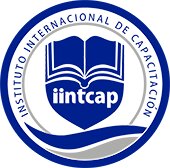Best Public-Private Partnerships (PPP) Lawyers in Santiago de los Caballeros
Share your needs with us, get contacted by law firms.
Free. Takes 2 min.
List of the best lawyers in Santiago de los Caballeros, Dominican Republic
About Public-Private Partnerships (PPP) Law in Santiago de los Caballeros, Dominican Republic
Public-Private Partnerships (PPP) are collaborative arrangements between government authorities and private sector companies designed to finance, build, operate, and maintain projects that typically provide public services or infrastructure. In Santiago de los Caballeros, one of the Dominican Republic's most important cities, PPPs are commonly used for transportation infrastructure, utilities, education, healthcare, and urban development projects.
The Dominican Republic has established a comprehensive regulatory framework for PPPs through Law No. 47-20 on Public-Private Partnerships (Ley No. 47-20), which aims to enhance efficiency, innovation, and investment in public projects. This framework governs PPP processes throughout the country, including Santiago de los Caballeros, and outlines the rules, requirements, and procedures for both the public and private sectors.
Why You May Need a Lawyer
Engaging in a Public-Private Partnership in Santiago de los Caballeros involves complex legal, regulatory, and financial considerations. Here are some common scenarios where legal assistance is crucial:
- Evaluating the legal risks and responsibilities of entering into a PPP agreement
- Negotiating contract terms and ensuring compliance with local and national laws
- Guiding project structuring, financing, and investment procedures
- Resolving disputes between partners or with government agencies
- Understanding tax benefits, obligations, and regulatory incentives
- Advising on bid submissions and public procurement procedures
- Navigating project approvals and permits with local authorities
- Ensuring intellectual property protection and labor law compliance
Legal expertise is essential to safeguard your interests, align with statutory requirements, and maximize the chances of a successful PPP venture.
Local Laws Overview
The primary law governing Public-Private Partnerships in Santiago de los Caballeros and throughout the Dominican Republic is Law No. 47-20 on Public-Private Partnerships. Key aspects of the local legal framework include:
- Project Eligibility: PPP projects must pertain to areas of public interest or essential services, such as transportation, energy, water, health, and education.
- Transparent Selection Process: PPPs are subject to public tenders, strict competition, and transparent processes, overseen by the Dirección General de Alianzas Público-Privadas (DGAPP).
- Contracts: Detailed contracts establish the duration, roles, investment commitments, performance standards, risk allocation, and dispute mechanisms.
- Approval and Supervision: Projects are reviewed and approved by both local and national authorities. Regular monitoring ensures compliance with performance and service delivery obligations.
- Dispute Resolution: PPP contracts must include mechanisms for dispute settlement, which may involve local courts, arbitration, or administrative review.
- Tax and Legal Incentives: Eligible PPP projects may benefit from specific fiscal incentives, tax exemptions, or preferential treatment under Dominican law.
Understanding these legal nuances is vital for successful participation in PPPs within Santiago de los Caballeros.
Frequently Asked Questions
What is a Public-Private Partnership (PPP)?
A PPP is a legal and financial arrangement in which a government entity and a private company collaborate to develop, finance, and manage a project that serves the public interest, such as roads, schools, or hospitals.
Are PPPs legal in Santiago de los Caballeros?
Yes, PPPs are authorized and regulated under Dominican national law, including in Santiago de los Caballeros. Activities must comply with Law No. 47-20 and other relevant regulations.
Who oversees PPPs in Santiago de los Caballeros?
The Dirección General de Alianzas Público-Privadas (DGAPP) is the principal national regulatory body responsible for supervising and managing PPP projects. Local municipal authorities may also be involved, depending on the project scope.
What types of projects can be developed as PPPs?
Eligible projects typically involve public infrastructure, utilities, education, healthcare, transportation, energy, and similar services essential for citizens and economic development.
How are PPP projects selected?
Projects are usually identified and proposed by government authorities or private sector entities. They undergo a public bidding process, risk assessments, and feasibility studies before any partnership is authorized.
Do foreign investors have access to PPPs in Santiago de los Caballeros?
Yes, foreign companies can participate in PPP projects, provided they comply with local legal and regulatory requirements, including those relating to corporate presence and tax obligations.
What are the main risks associated with PPPs?
Key risks include changes in regulations, project delays, financial challenges, inadequate contract terms, unexpected costs, and disputes between partners or with public authorities.
What legal protections do PPP contracts offer?
PPP contracts detail obligations, performance targets, investment commitments, termination clauses, dispute resolution processes, and risk-sharing arrangements to protect both parties' interests.
Can disputes in PPP projects be settled without going to court?
Yes, PPP agreements often include alternative dispute resolution clauses, such as mediation or arbitration, which can help resolve conflicts efficiently without lengthy court proceedings.
How can I begin participating in a PPP in Santiago de los Caballeros?
You can start by consulting with legal professionals experienced in PPPs, reviewing project opportunities published by DGAPP or the municipal government, and preparing necessary documentation for bidding processes.
Additional Resources
The following resources and institutions can provide further information or assistance related to PPPs in Santiago de los Caballeros:
- Dirección General de Alianzas Público-Privadas (DGAPP): The main governmental authority for PPPs in the Dominican Republic.
- Oficina Técnica de la Municipalidad de Santiago de los Caballeros: For local project information, permits, or urban development issues.
- Ministerio de Economía, Planificación y Desarrollo (MEPyD): Offers strategic guidance for investment and sustainable development.
- Chamber of Commerce and Production of Santiago: Provides support and business networking for private sector participants.
- Professional legal associations: Can help you connect with qualified PPP legal advisors or specialists.
Next Steps
If you are interested in or currently involved in a Public-Private Partnership in Santiago de los Caballeros, consider the following actions:
- Schedule a consultation with a lawyer or law firm experienced in PPP projects within the Dominican Republic.
- Collect all relevant documents, business records, and any communications regarding the proposed PPP project.
- Research current and upcoming PPP opportunities through official government portals or business chambers.
- Attend local seminars, workshops, or networking events focusing on public infrastructure and investment.
- Review the statutory requirements and start preparing the necessary legal documents and tender materials if you are interested in bidding on a PPP project.
Acting early, being well informed, and working with experienced legal professionals will help you navigate the complexities of PPPs and safeguard your investment or project in Santiago de los Caballeros.
Lawzana helps you find the best lawyers and law firms in Santiago de los Caballeros through a curated and pre-screened list of qualified legal professionals. Our platform offers rankings and detailed profiles of attorneys and law firms, allowing you to compare based on practice areas, including Public-Private Partnerships (PPP), experience, and client feedback.
Each profile includes a description of the firm's areas of practice, client reviews, team members and partners, year of establishment, spoken languages, office locations, contact information, social media presence, and any published articles or resources. Most firms on our platform speak English and are experienced in both local and international legal matters.
Get a quote from top-rated law firms in Santiago de los Caballeros, Dominican Republic — quickly, securely, and without unnecessary hassle.
Disclaimer:
The information provided on this page is for general informational purposes only and does not constitute legal advice. While we strive to ensure the accuracy and relevance of the content, legal information may change over time, and interpretations of the law can vary. You should always consult with a qualified legal professional for advice specific to your situation.
We disclaim all liability for actions taken or not taken based on the content of this page. If you believe any information is incorrect or outdated, please contact us, and we will review and update it where appropriate.













